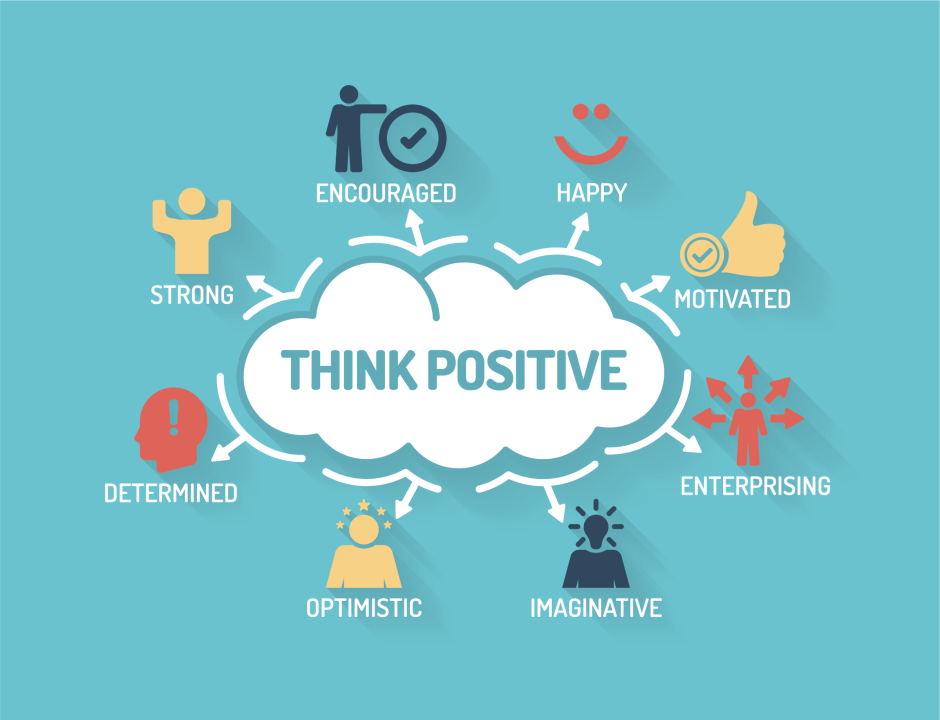
Positive thinking is not just a motivational phrase; it is a mindset that can transform the way we live, perceive challenges, and interact with the world. Embracing positivity does not mean ignoring difficulties—it means approaching life with hope, resilience, and confidence. The power of positive thinking can impact mental health, physical well-being, relationships, and overall success.
What is Positive Thinking?
Positive thinking is the practice of focusing on constructive thoughts, possibilities, and solutions rather than dwelling on negativity and obstacles. It involves seeing setbacks as opportunities for growth and maintaining a hopeful outlook, even in the face of challenges. Positive thinking is not about being unrealistically cheerful—it is about developing a mindset that empowers you to respond to life’s difficulties effectively.
Benefits of Positive Thinking

1. Improves Mental Health
One of the most significant advantages of positive thinking is its impact on mental health. Optimistic individuals tend to experience lower levels of stress, anxiety, and depression. By focusing on solutions rather than problems, positive thinkers reduce negative self-talk and develop emotional resilience. This mindset helps people face challenges calmly and constructively, preventing stress from overwhelming their lives.
2. Enhances Physical Health
Believe it or not, positive thinking can affect your physical health too. Studies have shown that optimistic people tend to have stronger immune systems, lower blood pressure, and a reduced risk of chronic illnesses. Stress can trigger inflammation and weaken the immune system, but maintaining a positive outlook reduces stress hormones and promotes overall well-being. In essence, a positive mind contributes to a healthier body.
3. Boosts Resilience
Life is full of ups and downs, and the ability to bounce back from adversity is crucial. Positive thinkers are more resilient because they view setbacks as temporary and manageable rather than permanent and insurmountable. This resilience allows them to recover faster from failures, learn from mistakes, and keep moving forward without losing motivation.
4. Improves Relationships
A positive attitude also influences how we interact with others. Optimistic individuals tend to be more empathetic, approachable, and supportive. This attracts positive social interactions, strengthens friendships, and fosters better communication in personal and professional relationships. Positive thinking encourages understanding, cooperation, and conflict resolution rather than criticism and blame.
5. Increases Productivity and Success
Positive thinking can directly impact performance and success. When people focus on what they can achieve rather than what they fear, they are more likely to set goals, take initiative, and persist despite obstacles. Optimistic individuals are also better problem-solvers—they approach challenges creatively and maintain motivation during setbacks. This proactive mindset often translates into greater achievements in both personal and professional life.
How to Cultivate Positive Thinking

1. Practice Gratitude
Focusing on what you are thankful for shifts attention away from negativity. Keeping a daily gratitude journal, listing small wins, or acknowledging acts of kindness can reinforce positive thinking and improve overall happiness.
2. Challenge Negative Thoughts
It’s natural to experience self-doubt or pessimism, but it’s important to question negative beliefs. Replace thoughts like “I can’t do this” with “I will try my best and learn from the experience.” Reframing your thoughts creates a more constructive mindset.
3. Surround Yourself with Positivity
The people we interact with and the environment we inhabit can influence our thinking. Engage with supportive friends, mentors, or communities, and limit exposure to negativity, whether online or offline. Positive energy is contagious—being around it can reinforce your own optimism.
4. Visualize Success
Visualization is a powerful tool in positive thinking. By imagining yourself achieving goals, overcoming challenges, and succeeding, you train your brain to expect favorable outcomes. This boosts confidence, motivation, and determination.
5. Take Care of Yourself
Physical health and mental well-being are deeply connected. Regular exercise, proper sleep, and a healthy diet support a positive mindset. When your body feels good, your mind naturally becomes more optimistic.
Conclusion
The power of positive thinking is transformative. It shapes how we perceive the world, navigate challenges, and build relationships. By adopting a positive mindset, we can reduce stress, improve health, increase resilience, and achieve greater success. Positive thinking is not a temporary fix—it is a lifelong practice that empowers individuals to live happier, more fulfilling lives. Embrace optimism, nurture hope, and focus on solutions, because the mind is a powerful tool, and what we believe can indeed become reality.





